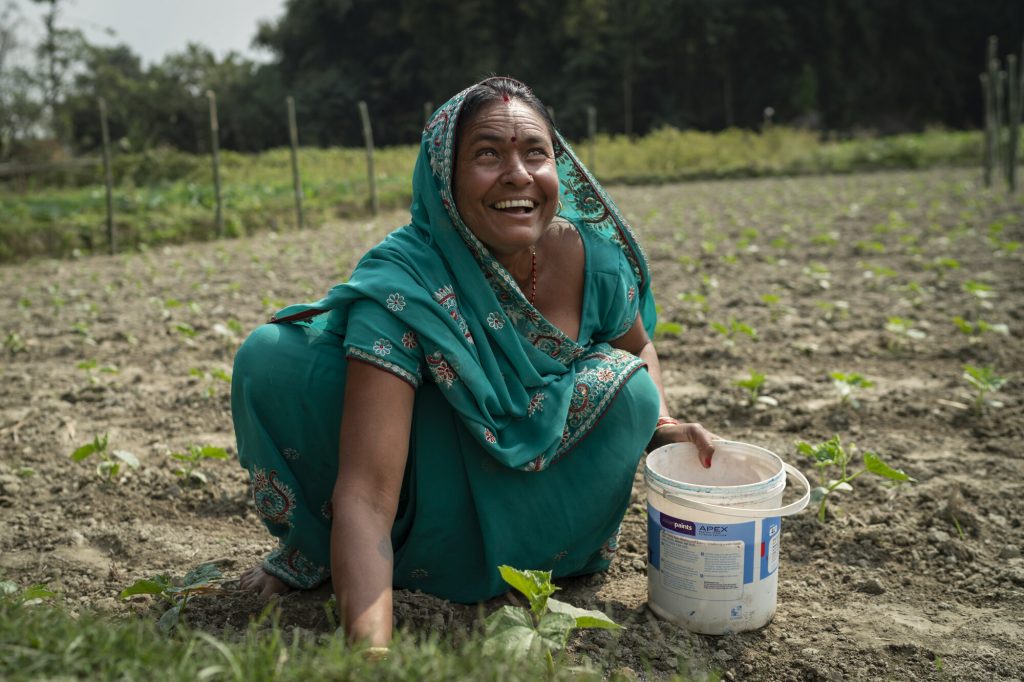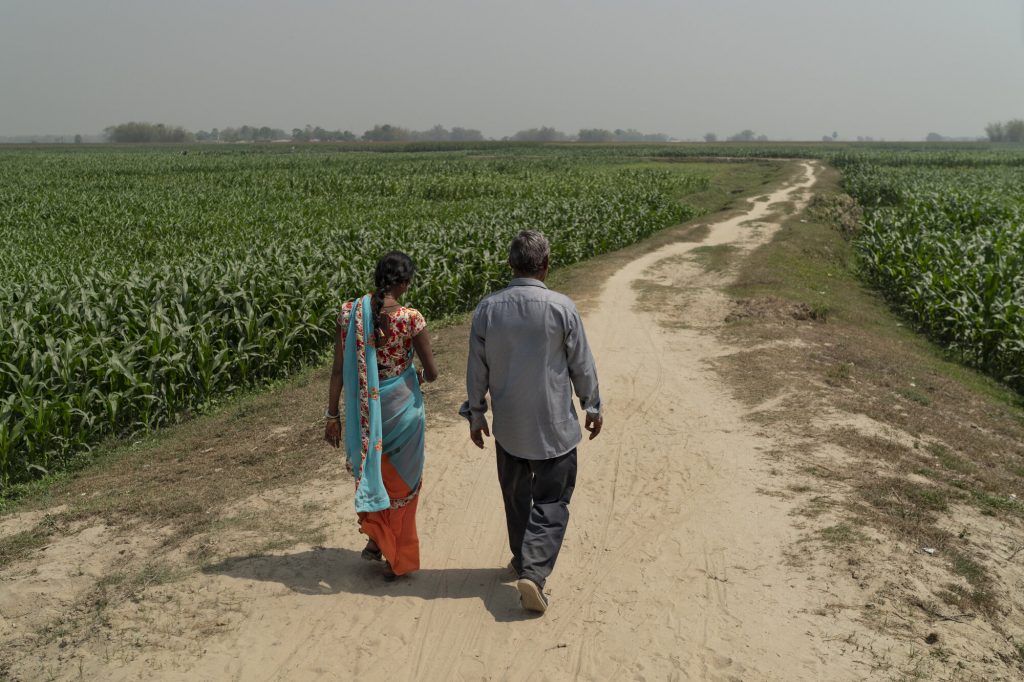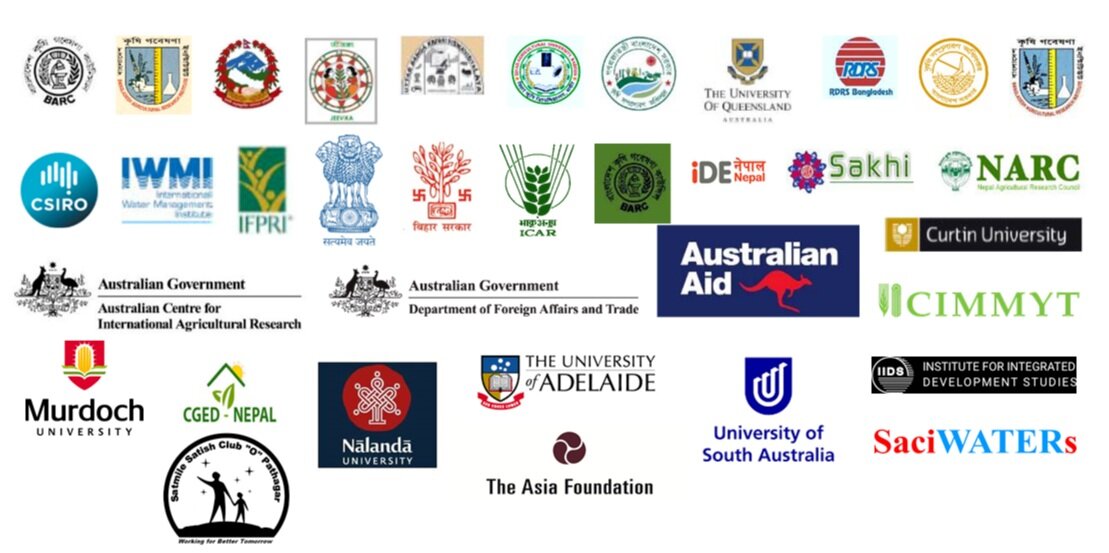1 – ACIAR SDIP Program Overview
The ACIAR SDIP program aims to maximise agriculture’s contribution to sustainable food systems in the Eastern Gangetic Plains of Bangladesh, India and Nepal, for improved food, energy and water security. Funded by the Australian Government’s Department of Foreign Affairs and Trade, this work is part of a wider regional portfolio in South Asia that focuses on integrated management of food, energy and water.
The program transitioned from understanding and promoting sustainable farming technologies based on conservation agriculture in SDIP Phase 1 (see summary here), to the wider context of the food system and a deeper understanding of the various factors which influence and enable its sustainability in Phase 2.
The ACIAR SDIP Phase 2 Implementation Framework (below) developed in 2018 focused on sustainable food systems as a way of integrating different sectors at a range of scales, and ensuring gender-inclusive planning processes and outcomes. The aim was to promote resilient and inclusive food systems supported by robust institutional arrangements, policies and strategic regional planning.


The program level objectives for Phase 2 include:
1. Improve collaboration between key partners (regional, national, state) to strengthen understanding of longer-term food systems changes and the implications for food, water and energy security; particularly in the context of gender and climate change.
2. Increase capacity within district, state and national agencies in the EGP to promote effective institutions for sustainable food systems.
3. Optimise the learning from scaling field level activities and local engagement to promote two-way flow of information for improved field–policy links.
4. Critical knowledge gaps identified, filled and used to support sustainable food systems, and to allow better decision making at a range of scales.
ACIAR SDIP Phase 2 has been implemented through five interlinked components (shown below). Component 1 serves as the overarching framework to ensure integration and synthesis across the program. Foresight work (Component 2) both informs and is informed by Policy (Component 3) and Field scale (Component 4) research. Underlying these components is a series of analytical studies (Component 5), which has been commissioned in an adaptive way throughout the course of the program, based on knowledge gaps and opportunities as issues have emerged.
This structure was designed to integrate local, meso and regional level visions and engagement to create the enabling conditions for the development and scaling of sustainable and resilient food systems that contribute to food, water and energy security. Together, they ensure that there is a consistent theme within the program, and that information flow is enhanced between different levels (farm, community, state, national, regional, policy). Importantly, this approach has allowed the broader system to connect with how farmers are impacted by change at different levels.

The ACIAR SDIP program has an extensive network of partners who have delivered individual research projects within the program.

This webpage is designed to capture individual project outputs and provide the background for the program level review. Reviewers are directed to relevant documents and project outputs throughout. The list of documents below gives the context for program design and evaluations conducted previously at project and portfolio levels.
Phase 1 documents
Phase 2 documents
Steering Committee
Program Review Presentations
Institutions – Lin Crase